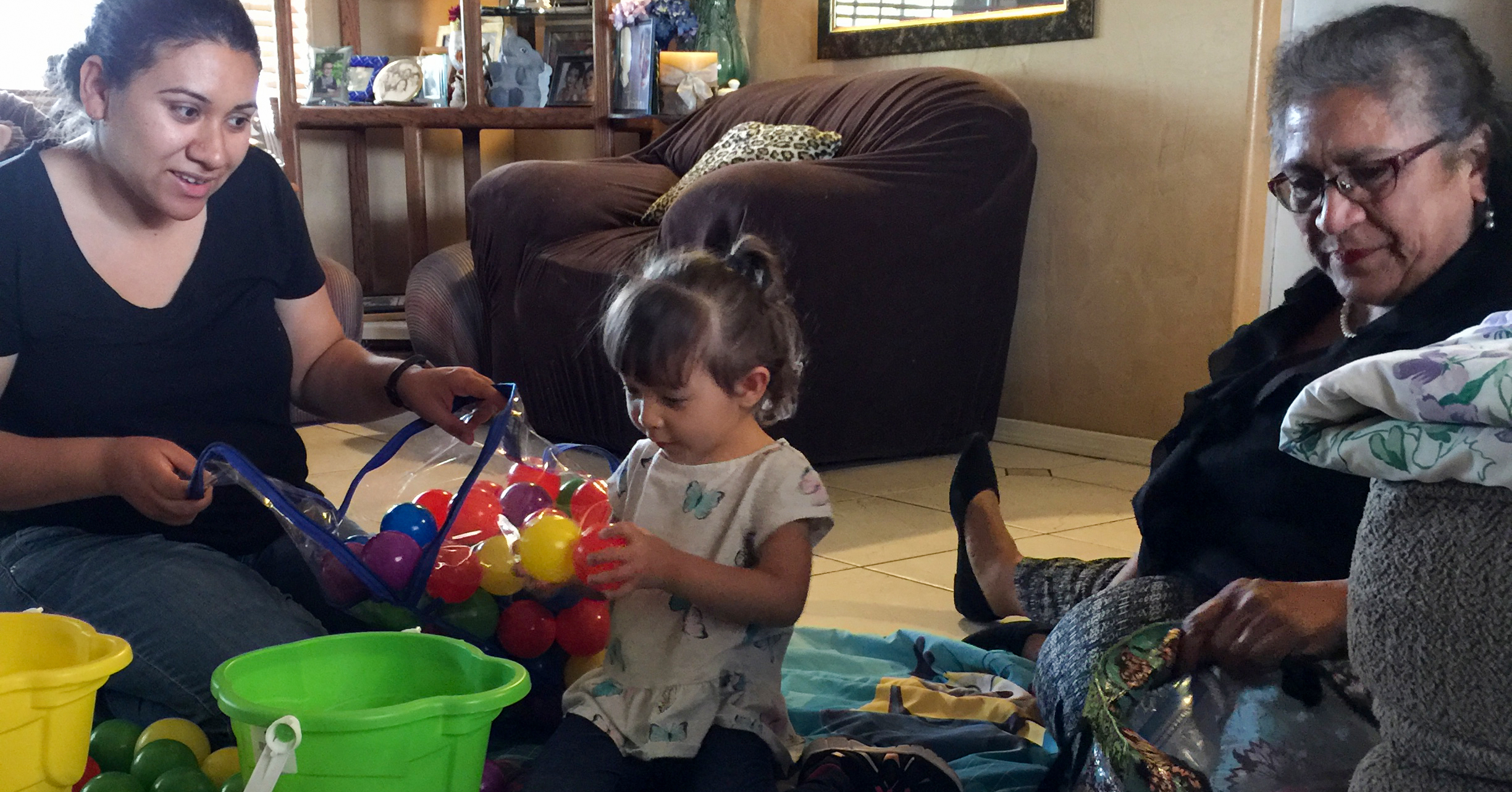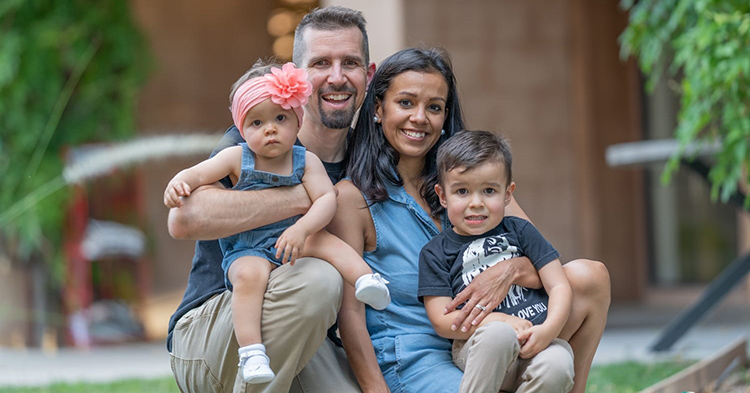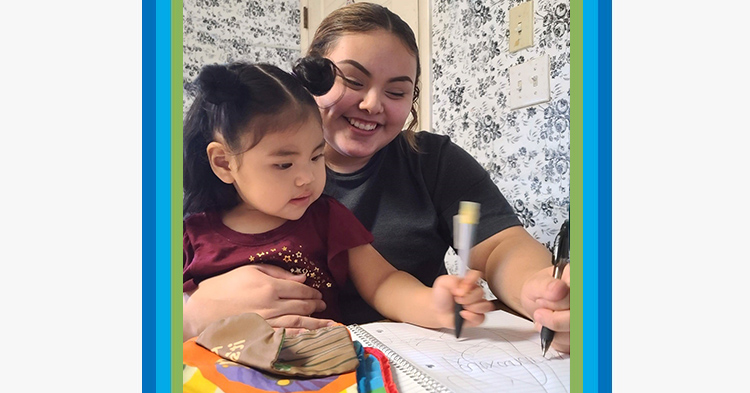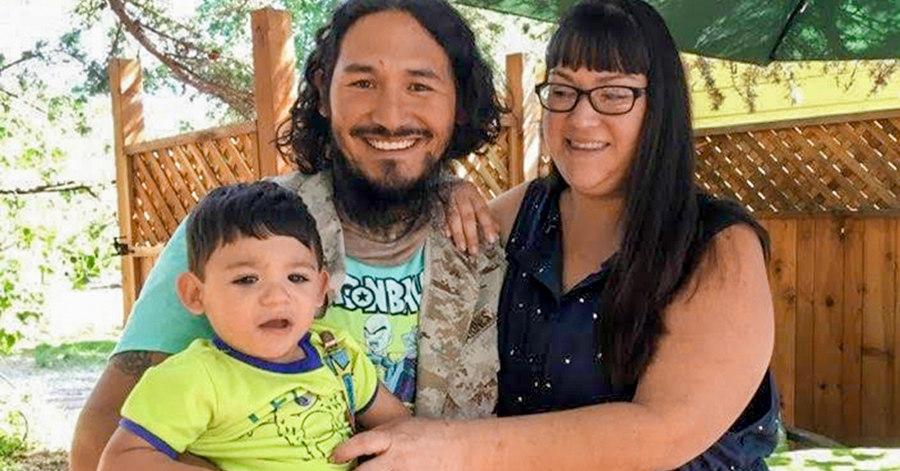All families should have the information, services and support they need to help their children achieve their fullest potential. Evidence-based home visitation provides families with personalized, in-home support, offering information, education and support on parenting, child development and health topics while simultaneously assisting with connections to other resources or programs as needed.
Regions funding this strategyExcerpts from a home visit in Greenlee County
Home Visitation Strategy for Regional Partnership Council Members
Home Visitation SFY19 Findings
Featured Stories
Funding Plan Highlights
Coconino
When the previous home visitation contract expired at the end of State Fiscal Year 2019 (SFY19), there was an opportunity to better define a scope of work that would continue to meet the needs of Havasupai families and better coordinate recruitment and enrollment of families with the Tribe’s Head Start and new Early Head Start programs. The home visitation Request for Grant Applications (RFGA) for the communities of Havasupai was intentionally shaped through conversations with the tribal council and community partners of Supai Village. The RFGA was released in SFY19 following the natural closure of the previous home visitation contract period. Unfortunately, following the conclusion of the application process, no applicant was recommended for award. As a result, FTF staff incorporated even more revisions to the scope of work in the RFGA to clearly define the intent of the home visitation strategy in Havasupai as well as the unique nature of providing those services in the Havasupai communities.
In June 2020 – through collaboration and partnership with tribal leadership, the regional council developed a scope of work with unique and clear specifications including the identification of the program model to be delivered, Parents As Teachers, staffing requirements such as hiring home visitors with knowledge and experience delivering this model and supporting/working with Havasupai families. It also required direct consultation and partnership with FTF staff to work with the Tribe and their Tribal Council leadership to implement the strategy. This was the first time this type of approach was utilized in releasing an RFGA. The grant was successfully awarded and the grant partner hired staff from the Havasupai community who met the qualifications specified in the scope of work.
Cocopah Tribe
The Cocopah Tribe Regional Partnership Council has focused on parenting support in response to multiple risk factors affecting young children, including the high number of children living in poverty who are at risk and the highly significant number of children who live in a single parent household where that single parent is unemployed (34 percent compared to 24 percent in Arizona). The home visitation approach provides comprehensive home visits services which include parenting education on child development, developmental and sensory screenings, literacy promotion, connections to community resources and opportunities to establish social support systems with other families.
Maricopas
Parent Partners Plus (PPP), the home visitation coordinated referral system, brings together 15 agencies providing home visitation. The collaborative group has approved a strategic plan with the goals of: 1) increasing recruitment and enrollment by a) launching a social media campaign and b) strengthening collaboration between PPP and the Arizona Early Intervention Program (AzEIP), the Department of Child Safety (DCS) and the Family Resource Network; and 2) increasing shared professional development opportunities among participating agencies. These goals reflect the main challenge faced this year: PPP and the home visitation agencies have not seen adequate numbers of families being referred to fill program capacity. While the reasons for low service numbers are unknown, possible explanations may include the changing economic climate (i.e. more families working and unavailable to receive services) and reluctance among mixed immigration status families to access services. However, PPP is pleased that increased efforts to build relationships are already paying off. They saw a dramatic increase in referrals late in the year from DCS: from 20 families in quarter three to 46 in quarter four of State Fiscal Year 2019.
Pima North and Pima South
Pima North, in partnership with Pima South, is implementing the evidence-based Home Visitation Strategy to provide personalized support for families with children birth through 36 months. The regional councils’ intent is to reach high-risk families. The regional council also recognizes the need to support the home visitors who are engaging with these high-needs populations. This strategy also provides technical assistance and professional development for home visitors around health, safety, trauma-informed care, behavioral health and developmentally appropriate practice. In an effort for system collaboration, an intentional bridge has been built between the home visitation strategy and the oral health and family support children with special needs strategies. These collaborative efforts bring together these programs for joint events and family engagement activities providing increased access to supportive services for families engaged in these programs.
Yuma
Both of Yuma’s home visitation programs (Healthy Families and Parents as Teachers) are working on a MOU with each other to enhance appropriate referrals.
Find more details about strategies related to Family Support in the FTF Strategy Toolkit.






